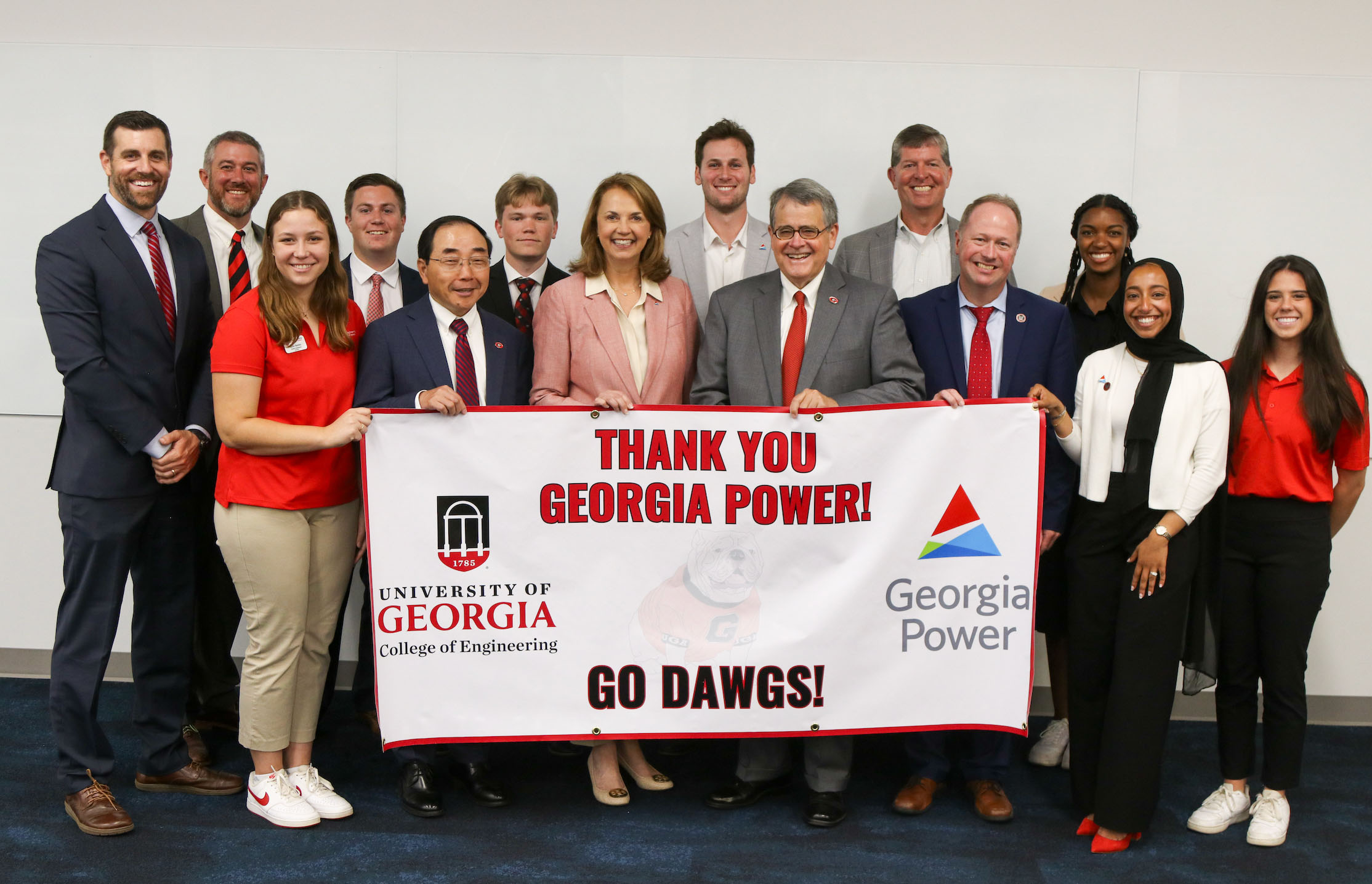SEE WHAT ELSE WE HAVE TO OFFER AT UGA.EDU
SEE WHAT ELSE WE HAVE TO OFFER AT UGA.EDU
UGA teams up with Georgia Power to give students hands-on experience with e-mobility.
What do you get when a top public university and a leading energy company work together? You get a sustainable future and students who know how to guide it.
Experiential learning is learning by doing. And, importantly, “learning through reflection on doing” involves an array of first-hand activities and experiences. Through programs like the UGA e-mobility initiative, which partners with businesses such as Georgia Power and leading automakers, students not only learn engineering skills for their major but directly engage with real-world problems and industry. E-mobility refers to the integration of electronic vehicles for transportation.

“I’ve gotten hands-on experience that I wouldn’t have been able to do in a classroom necessarily,” said Asa Fort, an engineering undergraduate and Georgia Power co-op participant. “It’s also given me an opportunity to use what I’ve learned and be able to translate that into a career opportunity.”
Future engineers like Asa have a better understanding of the fields they will be entering. “Being able to say I was part of Georgia Power, which has such a huge influence on everything that we do every day, is pretty special,” Asa said.
Students who participate in experiential learning develop critical thinking and problem-solving skills and are proven to be better prepared for the workforce. That’s vitally important when working on programs like electric mobility, which have incredible potential for environmental and economic impact in the state of Georgia. Other companies such as Cox Automotive and Kia Motors have joined the e-mobility initiative, offering UGA students a pathway to the industry through their organizations via educational experiences, internships, and research.
As an early adopter and leader in integrating experiential learning as a requirement, UGA understands the value of experiential learning for students. At least one experiential learning activity has been required for graduation since 2016. These take many forms, including creative production, study abroad and field study programs, internships, leadership opportunities, faculty-mentored research, and service-learning.
UGA President Jere W. Morehead summed it up, “We want our graduates to leave here having received a firm and strong educational foundation. We want them to have developed leadership skills and a sense of public responsibility.”
